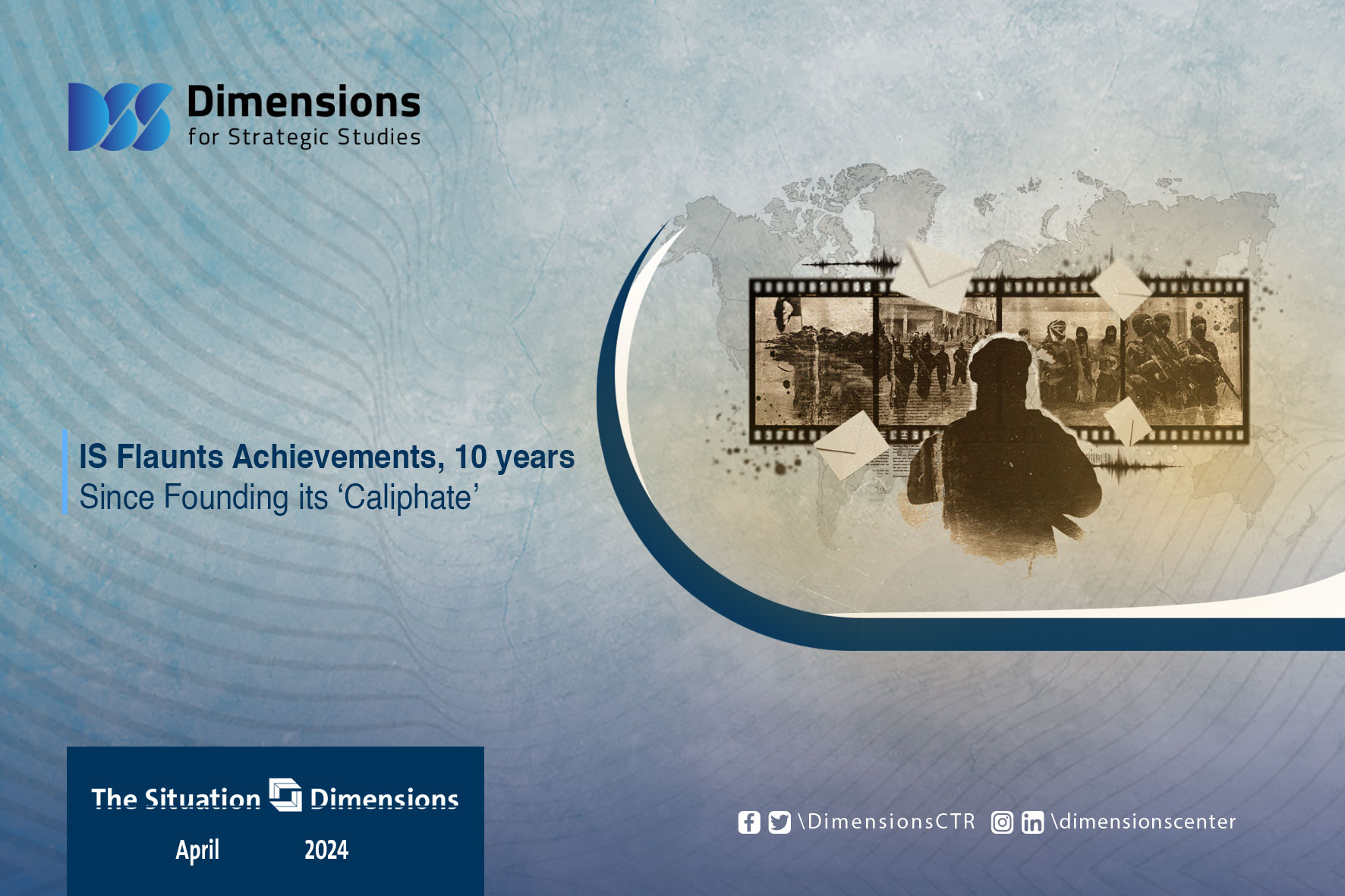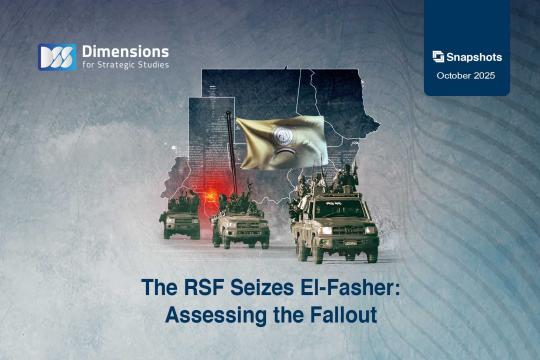
IS Flaunts Achievements, 10 years Since Founding its ‘Caliphate’
2024-04-052349 view
In late March, the Islamic State group issued a speech by its official spokesman, Abu Hudhayfah Al-Ansari, via its social media channels. Over 41 minutes, Al-Ansari laid out the organization’s operational and propaganda priorities, and reviewed the 10 years that have passed since the group, then at the zenith of its territorial control in Syria and Iraq, declared “the establishment of the Islamic Caliphate.”
Al-Ansari’s wide-ranging speech, his second as IS spokesman, painted a compelling picture of the organization’s situation and goals. It contained several messages to IS members and supporters, unveiled a new branch of the organization, and voiced a desire to step up lone wolf “jihadist” operations in Europe.
In it, he claimed that IS had “changed the course of history,” citing various achievements: “… the long-deferred imposition of Sharia law, the establishment of offices of just governance, hisbah (the Islamic obligation to promote good and prevent or denounce vice), judiciary, education, and spreading virtue, the revival of loyalty and innocence in the place of the arrogance of patriotism and nationalism.”
Al-Ansari added that over the past 10 years, coalition forces had faced “the greatest battle of attrition in history” and now faced two bitter options: leave and lose the battle, or stay and continue to bleed, across a vast area from East Asia to Afghanistan, from Russia to Iran, from Iraq to the Levant, and from eastern Mozambique and Somalia to the countries of the Sahel.
The speech urged IS supporters, whether formal members and leaders in its various branches or sympathizers who support the organization’s ideology and support it through social media, to continue working to achieve the organization’s goals and to “listen and obey”—a principle Al-Ansari said was a “duty” and “the foundation of the state.”
His comments reflected the organization’s pride in its branches in as distant areas as Mozambique, the Sahel and Afghanistan. Al-Ansari also used the speech to announce the creation of a new branch, IS Pakistan, something not previously mentioned in IS publications. This suggests that the organization is in the process of an restructuring its hierarchy, with a focus on its cells in Central Asia, something overseen by its branch in Afghanistan (“Khorasan Province”), which has managed to set up dozens of cells in European countries and carry several operations closer to its heartland, such as in Russia, Iran, India, and the Philippines.
In this connection, Ansari praised the group’s attacks against Jews and Christians around the world, notably the March 22 attack on the Crocus City Hall on outskirts of Moscow, which killed more than 140 people and wounded 360 others.
The speech also noted that IS has focused its recruitment efforts on Africa, reflecting an effort to strengthen its ranks with new fighters and exploit fragile African states in order to carve out a territorial presence, enabling it to pose a renewed global threat with enormous resources and the ability to attack Western countries, as well as threatening maritime cargo routes.
The statement also focused on IS attacks against the Syrian Democratic Forces (SDF) in northern Syria, saying it was taking vengeance for abuses against “chaste Muslim women,” and that the group would continue to target “SDF leaders, investigators, their prisoners, and everyone connected to the Al-Hawl refugee camp” where many members and suspected members are being held. Al-Ansari urged IS supporters to volunteer to die in “martyrdom and infiltration (inghimas)” missions for this cause, suggesting that the group is likely to repeat attempts to stage large-scale jailbreaks to free its members.
Indeed, the speech focused heavily on this escalation against the SDF and the group’s efforts to free IS members from the Kurdish-dominated group’s prisons and camps, as well as portraying the Al-Hawl camp as a symbol of injustice and persecution.
Al-Ansari’s speech was rambling and complex, but it covered many themes and messages that reflect the organization’s priorities and likely future actions. It also emphasized the group’s presence across a vast geographical area, aiming to demonstrate its strength and global reach.





